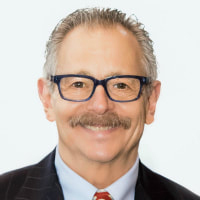
As an individual, you are one in a million, hopefully at least to your mom and your children. However, do you really need to be one in a million as a financial advisor?
Way back in the last century (1993), Michael Treacy and Fred Wiersema suggested in the Harvard Business Review article “Customer Intimacy and Other Value Disciplines” that companies could succeed by selling value and that they could establish leadership in new ways by delivering superior customer value via operational excellence, customer intimacy or product leadership.
The article explained that operational excellence is all about providing reliable products and services; companies that follow this strategy strive to lead their industries in price and convenience. Companies that pursue customer intimacy continually tailor and shape products and services to fit an increasingly fine definition of the customer. And companies that pursue product leadership strive to produce a continuous stream of state-of-the-art products and services. This requires constant creativity, rapid commercialization of ideas, and a relentless pursuit of new solutions to problems their offerings solve.
However, these three approaches to differentiation didn’t last very long. Today, just 30 years later, none of them will differentiate a financial advisory business. In fact, they are just three more of the minimum entry requirements or table stakes for an advisory practice.
All successful financial advisory firms must execute with excellence, be price competitive, build great relationships with their clients, and offer a full range of products and services. Products and services are generally indistinguishable from firm to firm. A vast majority of firms claim excellence in client intimacy and great service, and similar technologies have made operational excellence common.
Naturally, some firms may be marginally better than others or very competitive in all these areas, but we know there are many, many firms and advisors that fulfill these requirements without being particularly differentiated. With today’s technology, these factors are continually and rapidly moving “up and to the right,” and firms must constantly be running just to keep up.
So how do we differentiate ourselves in today’s environment?
Staying competitive
Author Morgan Housel offers five “sustainable sources of competitive advantage” in an article that originally appeared in Fortune:
- The ability to learn faster than your competition.
- The ability to empathize with customers more than your competition.
- The ability to communicate more effectively than your competition.
- The willingness to fail more than your competition.
- The willingness to wait longer than your competition.
Some of these sources of advantage may be more possible for large firms with significant resources, but what about solo and small financial advisory firms? I contend that while these are sources of competitive advantage, they are not exclusive to a limited number of firms or advisors because:
- Resources to take advantage of these principles are available to all.
- There are few, if any, limits to the abilities of most advisors and firms.
The real question is the willingness of individuals to invest themselves in these endeavors. Because these five points are critical to your success, you must incorporate them into your practice whether or not they are exclusive to you. Missing any of them would put you at a competitive disadvantage.
For example, learning fast is always important and there are few restrictions. Your options include spending time “on the business” by planning with your team (whether small and large); reading; attending conferences; and working with others — such as through a mastermind or study group with people in and out of your industry, through other network groups or with coaches. Reading seems to be a lost art in part, I suspect, because we are all inundated with the volume of materials available.
Perhaps listening is the most important skill for being a financial advisor. Directly listening to clients and prospects is critical. But reading also enables us to “listen” to the experiences and studies of others both within and outside of our own profession.
Happiness counts, too
In the book “Happier,” Harvard professor Tal Ben-Shahar, who states, “The ultimate currency for a human being is happiness.”
While money can affect happiness, there is much to suggest, it’s only one factor. Maybe incorporating other ways to achieve happiness into your practice would help you acquire clients.
Here are some of my thoughts:
- All of us can empathize with those we work and live with. If I hadn’t Googled it, I may not have known that there are special skills, steps, habits and other keys to developing empathy. Participating in training classes can help us practice and build empathy. Effort and intent must be applied to grow these skills.
- We tend to believe we are more skilled in many areas than we are. This applies to individuals in all professions. Morgan Housel has said, “Your personal experiences with money make up maybe 0.00000001% of what’s happened in the world, but maybe 80% of how you think the world works.”
- All professionals can develop important communication skills. In his book “Blink,” Malcom Gladwell points to a study of surgeons. Roughly half had never been sued; the other half had been sued at least twice. Those who had never been sued spent more than three minutes longer with each patient than those who had been sued (18.3 minutes vs. 15 minutes), Gladwell notes. They were also more likely to make “orienting” comments such as “First I’ll examine you, and then we will talk the problem over” or “I will leave time for your questions.” The time you spend communicating with financial-planning or wealth-management clients is critical. It’s also an opportunity to show empathy.
- Experimentation naturally brings failure. If we don’t experiment and try new ideas, we won’t fail. However, “Having a ‘growth mindset’ is essential for success,” Carl Dweck says in her book “Mindset.” Those who have a “fixed mindset” will want to prove themselves correct over and over rather than learning from their mistakes. In essence, we learn from our mistakes. Experimentation and failure teach us about what works and doesn’t work, and we grow. We must be willing to experiment and fail. All of us have that opportunity; some are more willing than others.
- Patience is still a virtue. The saying “patience is a virtue” seems to have stood the test of time. Back in the fifth century, it was referred to as one of the “seven heavenly virtues.” In our industry, it’s one of the principles we try and get our clients to understand. As Charlie Munger, Berkshire Hathaway’s vice chairman, has said, “The world is full of foolish gamblers, and they will not do as well as the patient investors.” Meanwhile, Berkshire Hathaway chairman Warren Buffett accumulated 99% of his wealth after his 50th birthday and about 98% after his 65th birthday, Morgan Housel noted during an interview.
Conclusion
I’ve discussed how to be a great financial advisor in several articles, including “What is a ‘Perfect’ Financial Advisor?” I‘ve never thought that any advisor could be completely unique or differentiated, in the sense that he or she was the only person operating in a way that no other advisor within the universe of hundreds of thousands of advisors also operate. Furthermore, I don’t believe it’s necessary.
However, I do believe that if you adopt the principles discussed here and in my other articles and offer a robust and comprehensive set of wealth management solutions, you will be fully capable of building a successful and profitable financial advisory business with all the clients you need.
In part, you also have the Pareto principle working for you: If there are 300,000 advisors in the business and you do all I suggest in an effective, efficient and excellent manner, you can be among the 20% of advisors that earn 80% of the business.
If there are as reported over 13 million investors with $1 million to $10 million in AUM in the United States, you are competing for over ten million clients with only 60,000 other advisors. What’s your fair share as a top quintile performer?
Remember the old joke about two guys who have to run away from a charging bear? You only have to run faster than the other guy. Even if 59,999 other advisors read this article, they won‘t all act on it before you do — so get started!
David Leo is founder of Street Smart Research Group LLC. He is an author, speaker, coach, consultant, and trainer to financial professionals. David has worked with the financial services industry for decades, originally as a consultant with IBM and then with UBS/Paine Webber before starting his own firm. If you would like more information about his services, contact him at David@CoachDavidLeo.com or visit www.coachdavidleo.com.







